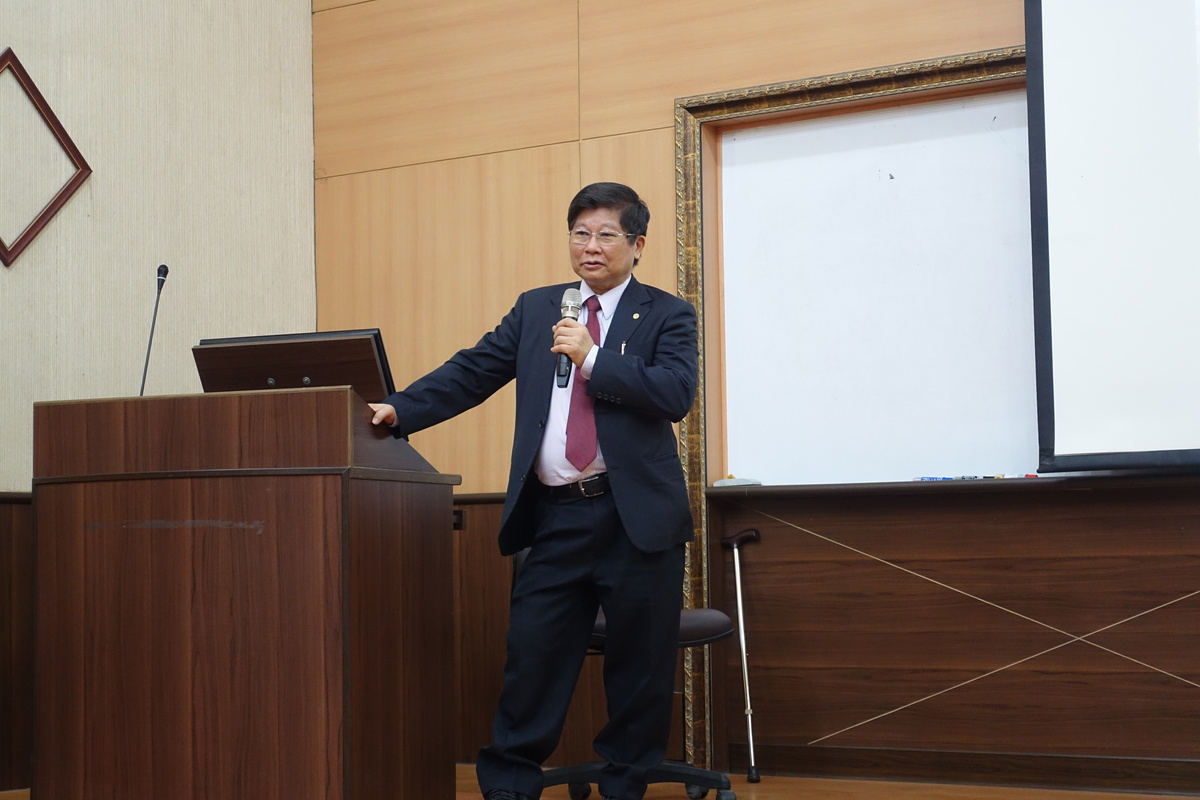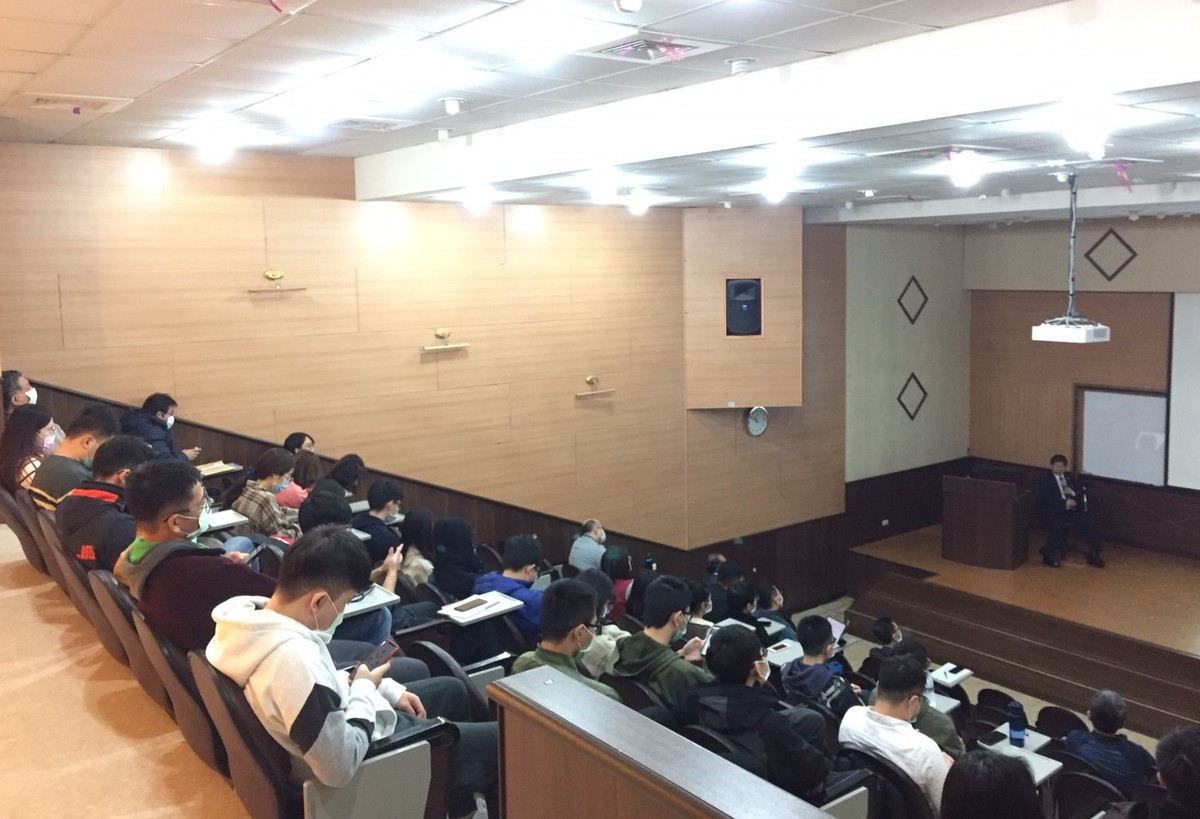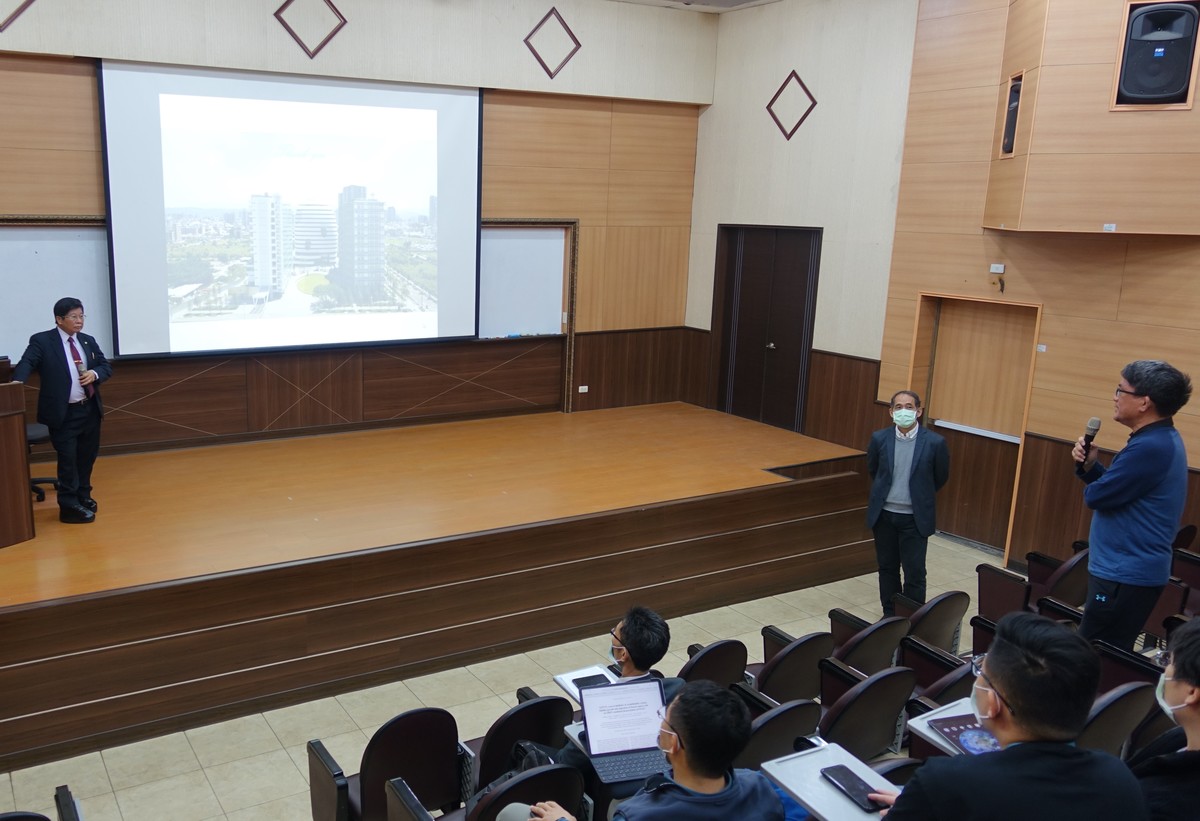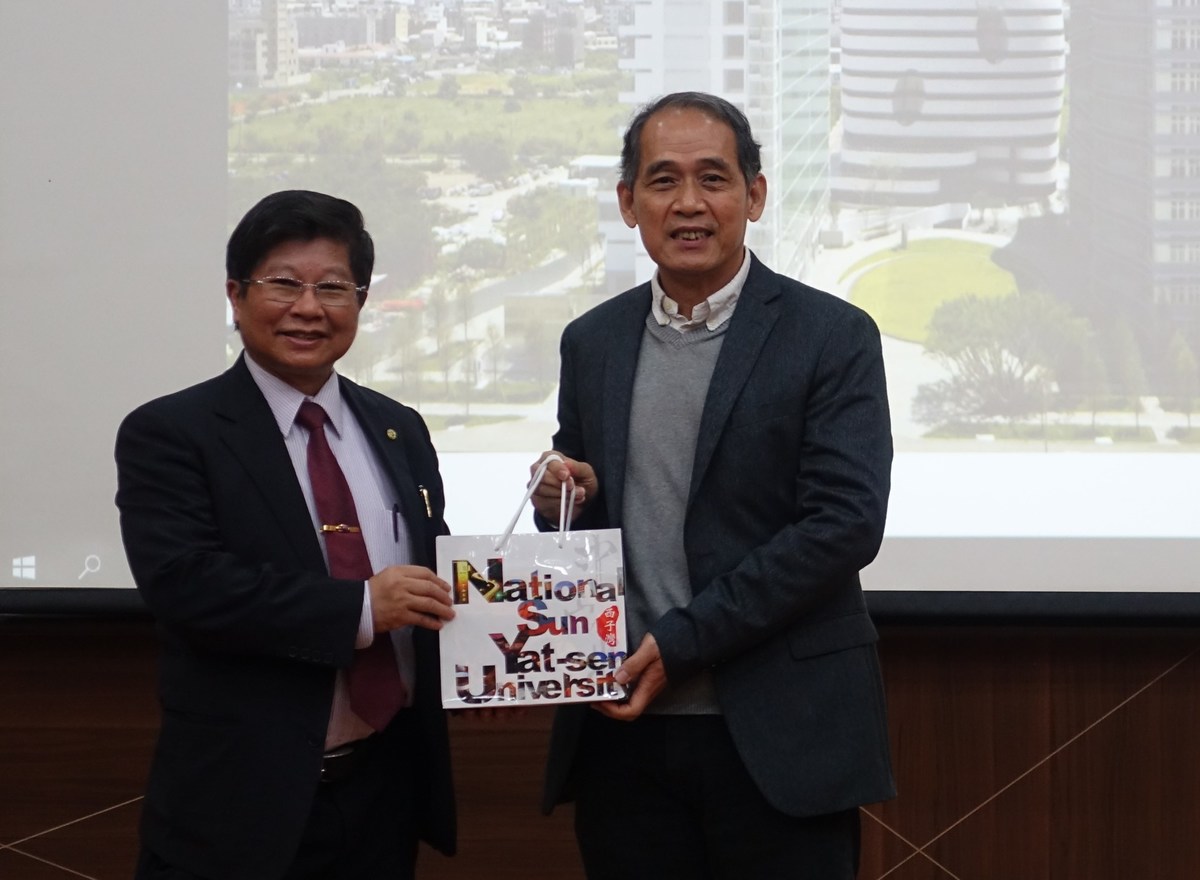CTH expression induces cancer progression and metastasis, finds Academician Lu-Hai Wang




2021-02-04
(Provided by Institute of BioPharmaceutical Sciences) The Institute of BioPharmaceutical Research, College of Science, NSYSU, invited the Academician of Academia Sinica Professor Lu-Hai Wang to give a speech and share his team’s newest research results on the dysregulation of cystathionine γ-lyase that promotes prostate cancer progression and metastasis via H2S-mediated regulation of NF-κB and PKM2.
Professor Lu-Hai Wang is currently the Vice President of China Medical University. He was awarded the title of Academician of Academia Sinica and The World Academy of Sciences. He achieved innovative results in the research on cancer metastasis and cancer stem cells, including cancer biomarkers, targeted therapies and immune cell therapy development. Professor Wang shared the latest findings of his research team. The team established highly metastatic prostate cancer cells by orthotropic tumor xenograft mice model, and in a large-scale genome-wide screening, found that highly metastatic tumor cells exhibit higher CTH expression than primary tumor cells. If higher CTH expression in primary tumor cells leads to cancer metastasis, then cancer cells with a higher CTH expression are correlated with lower survival rates in clinical patients with prostate cancer. This demonstrates that CTH may induce metastasis and lead to poor survival rates in prostate cancer patients.
Professor Wang mentioned that CTH is an enzyme that produces hydrogen sulfide (H2S) gas molecules and that past research has confirmed that some gas molecules, such as nitric oxide (NO), can transmit signals to modulate the physiological state of cells, however, hydrogen sulfide is seldom mentioned in signal transduction. Professor Wang's research team found that hydrogen sulfide undergoes sulfhydration on cysteine‐38 of the inflammatory transcription factor - the NF-kB protein and enables NF-kB to enter the nucleus and turn on genes related to cancer metastasis, such as Matrix Metalloproteinase-13 (MMP-13), vascular endothelial growth factor (VEGF), and Interleukin 1beta (IL-1beta). This finding negates the previous knowledge that only phosphorylation affects the transcriptional activity of NF-kB.
Wang further explained that CTH also induces PKM2 sulfation, causes PKM2 to change tetramer to dimer and enter the nucleus, and assists the expression of genes involved in the absorption of glucose and metabolism, such as glucose transporter (GLUT) and hexokinase. These findings, published in an international journal, EMBO reports, provide a novel mechanism for the famous "Warburg effect" hypothesis (that says that many cancer cells metabolize sugar rapidly to obtain energy).
Professor Wang said that the discovery of the relation between CTH expression and cancer metastasis and the study on how it causes cancer is just the beginning and that in the future, he hopes to collaborate with the faculty members of NSYSU who work in different fields of chemistry, biology, medicine, and natural compound, and apply this translational medicine research in clinical medicine to help more patients. After the lecture, Professor Lu-Hai Wang talked with the students and faculty of NSYSU and shared his experience setting up laboratories in the United States and Taiwan and immersing himself in research with students and trying to broaden their horizons.
(Edited by Public Affairs Division)
(Provided by Institute of BioPharmaceutical Sciences) The Institute of BioPharmaceutical Research, College of Science, NSYSU, invited the Academician of Academia Sinica Professor Lu-Hai Wang to give a speech and share his team’s newest research results on the dysregulation of cystathionine γ-lyase that promotes prostate cancer progression and metastasis via H2S-mediated regulation of NF-κB and PKM2.
Professor Lu-Hai Wang is currently the Vice President of China Medical University. He was awarded the title of Academician of Academia Sinica and The World Academy of Sciences. He achieved innovative results in the research on cancer metastasis and cancer stem cells, including cancer biomarkers, targeted therapies and immune cell therapy development. Professor Wang shared the latest findings of his research team. The team established highly metastatic prostate cancer cells by orthotropic tumor xenograft mice model, and in a large-scale genome-wide screening, found that highly metastatic tumor cells exhibit higher CTH expression than primary tumor cells. If higher CTH expression in primary tumor cells leads to cancer metastasis, then cancer cells with a higher CTH expression are correlated with lower survival rates in clinical patients with prostate cancer. This demonstrates that CTH may induce metastasis and lead to poor survival rates in prostate cancer patients.
Professor Wang mentioned that CTH is an enzyme that produces hydrogen sulfide (H2S) gas molecules and that past research has confirmed that some gas molecules, such as nitric oxide (NO), can transmit signals to modulate the physiological state of cells, however, hydrogen sulfide is seldom mentioned in signal transduction. Professor Wang's research team found that hydrogen sulfide undergoes sulfhydration on cysteine‐38 of the inflammatory transcription factor - the NF-kB protein and enables NF-kB to enter the nucleus and turn on genes related to cancer metastasis, such as Matrix Metalloproteinase-13 (MMP-13), vascular endothelial growth factor (VEGF), and Interleukin 1beta (IL-1beta). This finding negates the previous knowledge that only phosphorylation affects the transcriptional activity of NF-kB.
Wang further explained that CTH also induces PKM2 sulfation, causes PKM2 to change tetramer to dimer and enter the nucleus, and assists the expression of genes involved in the absorption of glucose and metabolism, such as glucose transporter (GLUT) and hexokinase. These findings, published in an international journal, EMBO reports, provide a novel mechanism for the famous "Warburg effect" hypothesis (that says that many cancer cells metabolize sugar rapidly to obtain energy).
Professor Wang said that the discovery of the relation between CTH expression and cancer metastasis and the study on how it causes cancer is just the beginning and that in the future, he hopes to collaborate with the faculty members of NSYSU who work in different fields of chemistry, biology, medicine, and natural compound, and apply this translational medicine research in clinical medicine to help more patients. After the lecture, Professor Lu-Hai Wang talked with the students and faculty of NSYSU and shared his experience setting up laboratories in the United States and Taiwan and immersing himself in research with students and trying to broaden their horizons.
(Edited by Public Affairs Division)
Click Num:
Share
